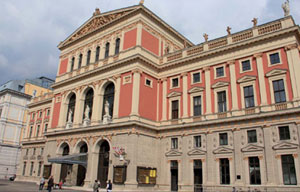Collateral damage set to pile up as talks collapse
Updated: 2011-10-31 11:09
(Agencies)
|
|||||||||
With no end to a bitter labor dispute in sight collateral damage is beginning to mount as the National Basketball Association (NBA) announced it was canceling more games.
For the third time in a month, a glum NBA Commissioner David Stern stepped up to the microphone and announced the cancellation of games as players and owners appeared set to endure a long, cold winter of haggling over a new collective bargaining agreement.
| ||||
"The amount of dollars lost to the owners is extraordinary. And the amount of dollars lost to players under individual contracts is also extraordinary."
Having canceled the entire preseason and then the first two weeks of the regular season, which was set to tipoff on Nov 1, Stern lopped two more weeks off the schedule on Friday as the bitter standoff between owners and players escalated.
Both sides have warned of the devastating consequences a lost season would have on the league but some are already feeling the tremors as arena ushers, security staff, vendors and others whose incomes are linked to the NBA begin to deal with the squeeze from lost jobs and wages.
"We share the frustrations of our fans, partners, and those who rely on our game for their livelihoods," said NBA Deputy Commissioner Adam Silver. "We remain committed to reaching an agreement that's fair for both the teams and the players and allows for the long-term growth of our game."
With no talks scheduled, locked out players have been left scrambling to find ways to ride out the storm.
A few foreign players have returned to domestic leagues while some of the NBA's bigger names, like Los Angeles Lakers All-Star Kobe Bryant, are also reportedly exploring the possibility of playing overseas.
Playing overseas
German Dirk Nowitzki, the most valuable player of last season's NBA Finals for the champion Dallas Mavericks, said recently he would consider playing overseas if the lockout drags on.
During the labor dispute that wiped out the entire 2004-05 National Hockey League season, 350 members of the NHL Players Association found jobs in various European leagues.
Many, like Swedes Daniel Alfredsson and Henrik Zetterberg returned home to play while others like Canadian Rick Nash and Joe Thornton found refuge in Switzerland.
There have also been reports of plans for a world tour by locked out players.
NHL great Wayne Gretzky led a team overseas during the league's 1994 labor dispute while the NHL World Stars barnstormed their way around Europe during the 2004-05 lockout.
Some of the NBA's biggest names, including Bryant, LeBron James, Dwyane Wade and Derrick Rose, may be planning something similar with a November tour in the works with stops in Puerto Rico, London, Macau and Australia.
Players and owners remain well divided over one main issues -- the division of basketball-related income.
NBA owners contend the league lost $300 million last season with 22 of 30 teams in the red and initially demanded players cut their share of revenue from 57 to 47 percent from the previous collective bargaining agreement, along with a firm salary cap and shorter contracts.
The players had offered to reduce their share from 57 to 53 percent, and lowered that to 52.5 percent last week. But that was not enough for the owners, who had formally proposed a 50-50 split.
In the end, neither side was willing to move off their positions.
"We made an offer and that was our offer and because that offer was less than 52 percent (executive director of the players' union) Billy Hunter said that's it and he left," said Stern.
Like the NFL, the NBA labor dispute essentially boils down to a battle between millionaire players and billionaire owners with neither side finding any support among casual sport fans.
With the US still clawing its way out of recession and millions of Americans searching for work there is little sympathy for NBA players grumbling about an average salary of over $5 million a season.
While the league and players are certain to face a backlash at home, some experts feel the the lockout could help grow NBA interest outside the United States,
"The lockout might in a strange, perverted sort of way help this league in its continual effort to be the best American global sports brand," Paul Swangard, managing director, Warsaw Sports Marketing Centre at the University of Oregon, told Reuters.
"You've got all these players over in China, you've got Kobe potentially playing in Italy, you've got barnstorming tours planned, all the product companies are leveraging those player assets in emerging markets."











